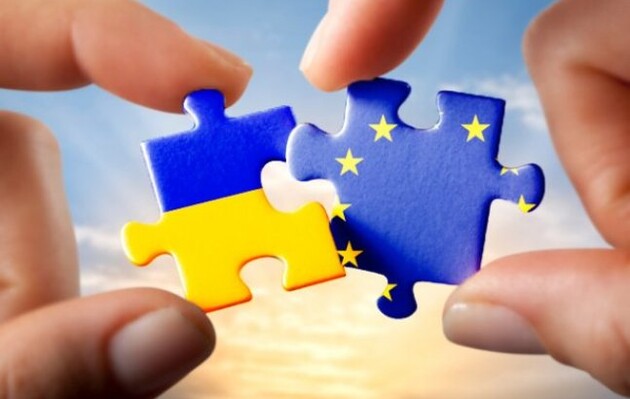There is no decision on further restrictions on imports of Ukrainian agricultural products to the EU. But there are statements
31 March 09:42
European Commissioner for Agriculture Christof Hansen has said that imports of agricultural products from Ukraine to the European Union will be reduced after the trade agreement between Kyiv and Brussels expires on June 5, according to which Ukrainian goods were allowed to enter the European market duty-free. Bild reports this with reference to the official’s interview with the AFP news agency, "Komersant Ukrainian" informs.
“Import quotas will not remain the same as under the current temporary liberalization. There will be less imports,” Christoph Hansen said.
No common position in the EU
The political and economic landscape in the European Union is complex. On the one hand, Poland, Hungary, Slovakia, and Bulgaria remain opposed to full liberalization for Ukraine’s agricultural sector, citing pressure from their domestic agricultural sectors.
On the other hand, the European Commission understands that Ukraine needs support.
“We need to support Ukraine now more than ever,” the European Commission recently emphasized.
Ukraine also reminds us of this. On March 24, Finance Minister Sergiy Marchenko told the British Financial Times: “The European Union is our key trading partner, and therefore it would be very unprofitable for us if we [found ourselves] in the situation that we had before the war.”
The Verkhovna Rada Committee on Economic Development recently held a joint online meeting with the European Parliament’s Committee on International Trade.
According to Dmytro Natalukha, the chairman of the committee, the message of the Ukrainian side was very simple, but honest and straightforward: “Supporting Ukraine’s military efforts is not only about weapons, it is also about supporting the Ukrainian economy, and today it needs the extension of autonomous trade measures.”
According to the MP, if the negotiations are not completed in time, there will be an automatic return to the tariffs and duty-free tariff quotas that were in place before the full-scale invasion.
What are the consequences of such a scenario?
Dmytro Natalukha, Chairman of the Verkhovna Rada Committee on Economic Development, mentioned the following possible consequences
– a drop in national GDP by 2.3-2.5%;
– the overall drop in tax revenues to the budgets of all levels will reach 4.15%;
– corporate profits will decrease by 2.71%;
– incomes of employees will decrease by 1.71%;
– at the sectoral level, the main negative effect will be on the food industry (minus 3.99%) and agriculture (minus 7.74%), but an even greater drop in production in relative terms will be experienced by the chemical and related industries (minus 13.03%) and the production of motor vehicles, trailers and semi-trailers (minus 13.49%), for which agriculture is an important consumer of their intermediate products (in particular, fertilizers) and fixed assets (agricultural machinery).
– there is a possibility of an overall decrease in economic activity in the services sector by 1.06% (of which the largest is veterinary activities (minus 2.68%), financial and insurance services (minus 2.16%), electricity and gas supply (minus 2.14%), wholesale and retail trade (minus 1.49%), transportation and warehousing (minus 1.44%).
Extension of autonomous trade measures is beneficial not only for Ukraine
According to Dmytro Natalukha, the EU should also be interested in extending the current trade regime.
First of all, according to the MP, over the past three years, European companies have also benefited from the growth of exports and imports between our countries.
“Ukrainian goods are already part of European supply chains, and our agricultural products play a critical role in Europe’s food security,” he emphasized.
Secondly, any trade barriers today will only exacerbate the crisis in the region and increase the negative effect on the entire EU market.
Thirdly, despite the war, Ukrainian companies are fulfilling their obligations to adapt to EU standards, reforming customs legislation and implementing European standards in production.
According to Dmytro Natalukha, the current task of Ukrainian and European negotiators is to find a balance between the interests of the Ukrainian economy and maintaining stability in the European market.
To support Kyiv in its conflict with Russia, the EU introduced tariff relief for agricultural imports from Ukraine in 2022. Due to protests by EU farmers last year, the volume of duty-free imports of certain products was limited.
As the agreement expires on June 5, the EU and Ukraine will have to agree on a new deal in the coming weeks.









